The DECODE Advisory Group will be chaired by the Project Coordinator Francesca Bria, and kicks off in January 2018 during the second DECODE annual General Assembly. The role of the 21 high-level distinguished experts from relevant domains will be to comment on, and challenge the research findings throughout the project and advise on the final report, including policy recommendations for the European Commission on how to protect citizens' digital sovereignty.
The Advisory Group will also serve as a Blockchain Working Group that is set up to critically assess blockchain technology and its development in a scientitifically grounded way. It will suggest the way forward for Europe to develop open and distributed information architectures to conter the unacceptable data exploitation we are increasingly finding as a standard business model.
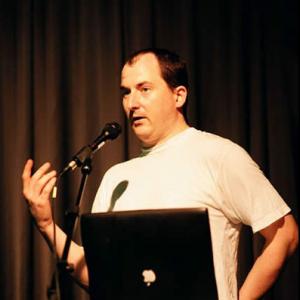
Andy Müller-Maguhn is a member of the German hacker association Chaos Computer Club. Having been a member since 1986 he was appointed as a spokesman for the club in 1990, and later served on its board until 2012. In 1995, Müller-Maguhn founded the "Datenreisebüro" ('Data Travel Agency'), since 2002 based in a Berlin office.

Brett Scott is a journalist, campaigner and the author of The Heretic's Guide to Global Finance: Hacking the Future of Money (Pluto, 2013). He writes for publications such as the Guardian, New Scientist, Wired Magazine and CNN. He is a Senior Fellow of the Finance Innovation Lab, he helps facilitate a course on power and design at the University of the Arts London, and facilitates workshops on alternative finance with The London School of Financial Arts.

Brhmie Balaram is a Senior Researcher in the RSA’s Economy, Enterprise and Manufacturing team. She led the RSA’s research on the sharing and gig economy, and is now leading the RSA’s research with DeepMind on engaging citizens in the ethics of using artificial intelligence. She was previously a researcher for the Independent Review of the Police Federation and for the influential RSA City Growth Commission. She has experience exploring issues of institutional reform, economic inequality and labour market disadvantage. Brhmie joined the RSA from the Institute of Public Policy Research and was formerly at The Work Foundation.
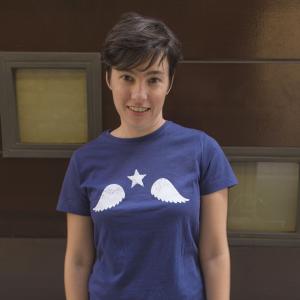
Carmella is a Tenure Track Assistant Professor at EPFL in Lausanne, Switzerland. She heads the SPRING Lab focused on Security and Privacy Engineering at EPFL. Prior to that, Carmella was a Faculty member at the IMDEA Software Institute in Madrid, Spain; the Security and Privacy Technical Lead Engineer at Gradiant; and a post doctoral researcher at the COSIC group, lead by Prof. Bart Preneel.

Caroline Nevejan is researcher and designer focusing on the impliications of technology on society. Having been involved with interdsiciplinary projects for over 20 years, she speaks a variety of professional languages. She has been initator, conceptualizer, producer, manager and director of local, national and international work. She works with internationally with professionals, academics and artists on Witnessed Presence. Currently she is connected to Delft Technical University, where she collaborates with Professor Frances Brazier. She is crown member in the Dutch Council for Culture and the Arts (cultuur.nl)
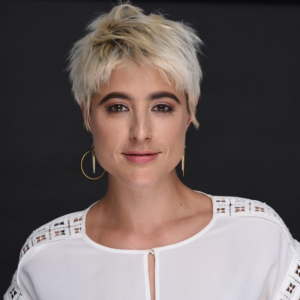
Chelsea is a research scientist at the MIT Media Lab, where she researches the ethical implications of data-driven decision making systems. Her work currently focuses on addressing the civil rights issues that emerge with the expansion of actuarial risk assessments in the US criminal justice system. Formerly, she was the Head of Social Innovation at MIT's Digital Currency Initiative, where she worked closely with engineers to develop blueprints for data systems that provide strong consumer protections and privacy guarantees for everyday people. Common across all her work is a general interest in building and critically examining technologies that aim to serve the public interest.
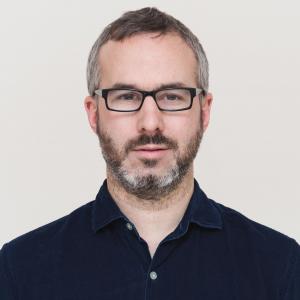
Dan Hill is an Associate Director at Arup, and Head of Arup Digital Studio, a multidisciplinary strategic and service design team. He is a Visiting Professor at UCL Bartlett Institute for Innovation and Public Purpose in London and an Adjunct Professor at RMIT University in Melbourne and University of Technology Sydney.

Elias has been spending the past 10 years planning, building and running digital products. His main focus these days is decentralised technology. He is one of the founders of b9lab, a blockchain research and development lab. His background is in Artificial Intelligence, mainly neural networks and evolutionary computing. Since the early days of bitcoin he has been following the progress of blockchain tech and gathered experience with smart contracts/trustless computation.

Evgeny Morozov is the author of the Net Delusion: The Dark Side of Internet Freedom. He is a visiting scholar at Stanford University and a Schwartz fellow at the New America Foundation.

As a technology-focused lawyer Florian advises blockchain-centric organizations on legal compliance and systems design.

Gavin explores the impact of the web on society and culture. He has co-created over a dozen organisations covering diverse areas such as data (including the Open Data Institute with Sir Tim Berners-Lee), climate change, music, finance, blockchain, the internet of things, machine learning, media, and historic ships.
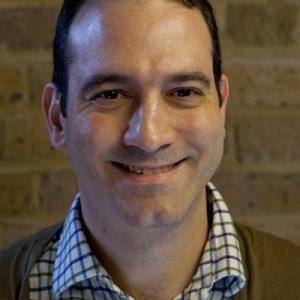
Javier leads on policy at the UK based advocacy organisation Open Rights Group. His work covers a broad range of digital rights in areas such as transparency, privacy, state surveillance and intellectual property. He has supported the city of Barcelona in the drafting of their innovative digital policy. Javier is also a visiting fellow at the London School of Economics. He has previously worked as a union organiser, journalist and campaigner building citizen media platforms and supporting the digital activities of campaigning organisations in Europe and Latin America.
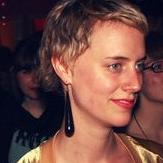
Jaya Klara Brekke writes, does research and speaks on the political economy of blockchain and consensus protocols, focusing on questions of politics and power in distributed systems. She is the author of the B9Lab ethical training module for blockchain developers, and the Satoshi Oath, a hippocratic oath for blockchain development. She is based between London, and the Geography department at Durham University, UK where she is writing a PhD.
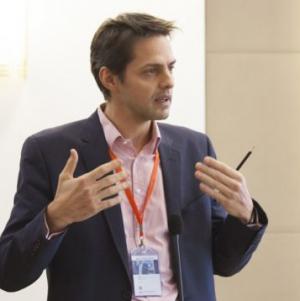
Joris is a Professor of Law at the Vrije Universiteit Brussels (VUB) and a Senior Researcher at the Institute for Information Law (IViR), University of Amsterdam. He works on the intersection of fundamental rights protection (data privacy, freedom of expression, non-discrimination) and the governance of platforms and internet-based services.
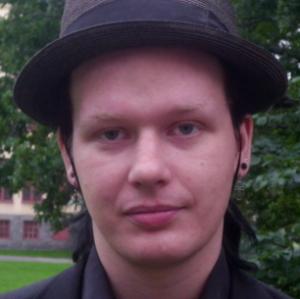
Ola is a software developer working for Centro de Autonomía Digital, mainly with privacy, security and cryptography issues. Ola used to work for ThoughtWorks, involved in many different subjects including programming language design and implementation (JRuby, Ioke, Seph).

Paul Mason is a British commentator and radio personality. He was Culture and Digital Editor of Channel 4 News becoming the programme's Economics Editor on 1 June 2014, a post he formerly held on BBC Two's Newsnight programme. He is the author of several books, and a visiting professor at the University of Wolverhampton.

Pierre Bellanger: founder and CEO of the Skyrock group. Skyrock is the first urban radio in the world with 3.5 million daily listeners. On it’s Internet and mobile network sites Skyrock welcomes more than one million daily visitors. Pioneer of free radio broadcasting and social networks, he is an entrepreneur and expert of the Internet. Skyrock.com is the first French social network of blogs and the first French speaking social network in the world. He has published for twenty years about media and computer networks. His latest book is called “The digital sovereignty”. He also helped to create France's “Alerte-Enlevement”, the child rescue alert system.

Dr Rachel O'Dwyer is a media and communications scholar in CONNECT, Trinity College Dublin, the SFI Centre for Future Networks and Communications, Her research focuses on emerging markets at the intersection of data mobile networks and payments, with a particular focus on blockchain technologies.
She is the leader of the Dublin Art and Technology Association (www.data.ie) and curator of openhere, a festival and conference on the digital commons. She is active in peer-to-peer movements and has a critical interest in digital commons, open source and decentralised technologies.
.jpg%3Fitok=n_hBIK_2&sc=0b06f4a4e89cbbf2d28b25e3d0578e76)
Renata Avila, Guatemalan, is an international lawyer and digital rights advocate. Specializing in Intellectual Property and Technology, her work addresses the crucial intersection between human rights, information, technological change and the power disparities between the Global North and South.

Seda Gürses is an FWO fellow at the COSIC group in the Department of Electrical Engineering, University of Leuven and an affiliate at the Center for Information Technology and Policy (CITP) at Princeton University. She works on privacy and requirements engineering, privacy enhancing technologies, cybersecurity and surveillance.

Shoshana Zuboff joined the Harvard Business School faculty in 1981. One of the first tenured women at the school, she was the Charles Edward Wilson Professor of Business Administration. In 2014 and 2015 she was a Faculty Associate at the Berkman Center for Internet and Society at Harvard Law School. Her career has been devoted to the study of the rise of the digital, its individual, organizational, and social consequences, and its relationship to the history and future of capitalism.

 DECODE was funded by the European Union's Horizon 2020 Programme, under grant agreement number 732546.
DECODE was funded by the European Union's Horizon 2020 Programme, under grant agreement number 732546.